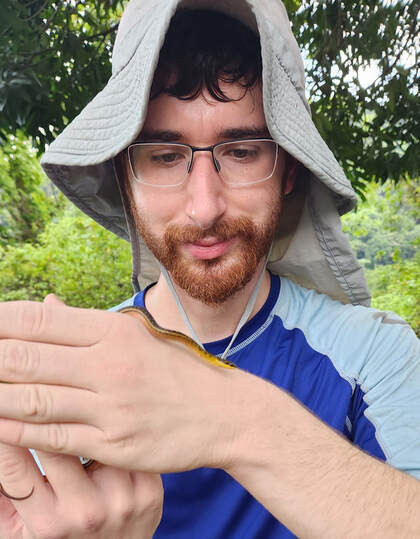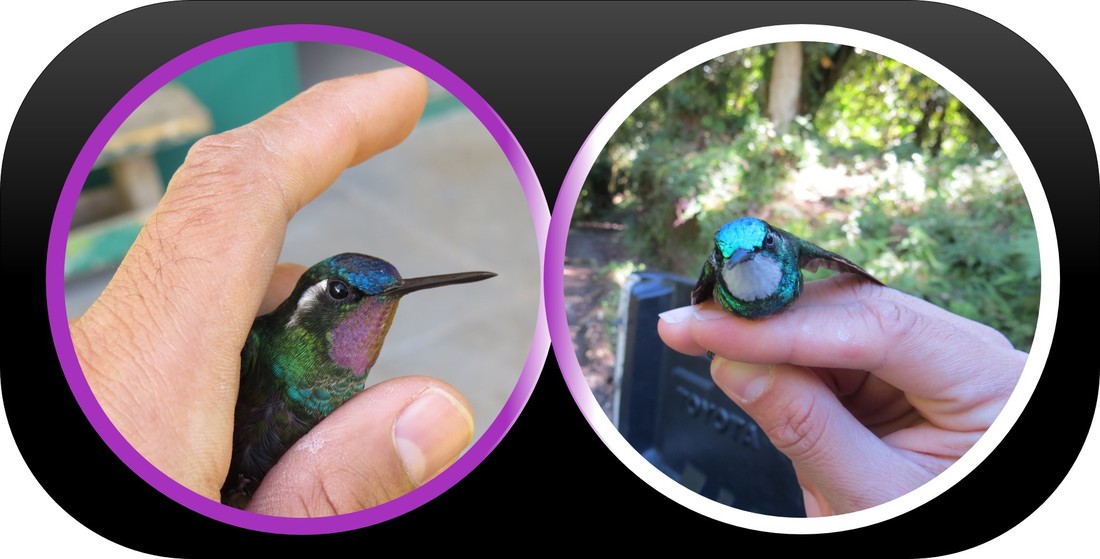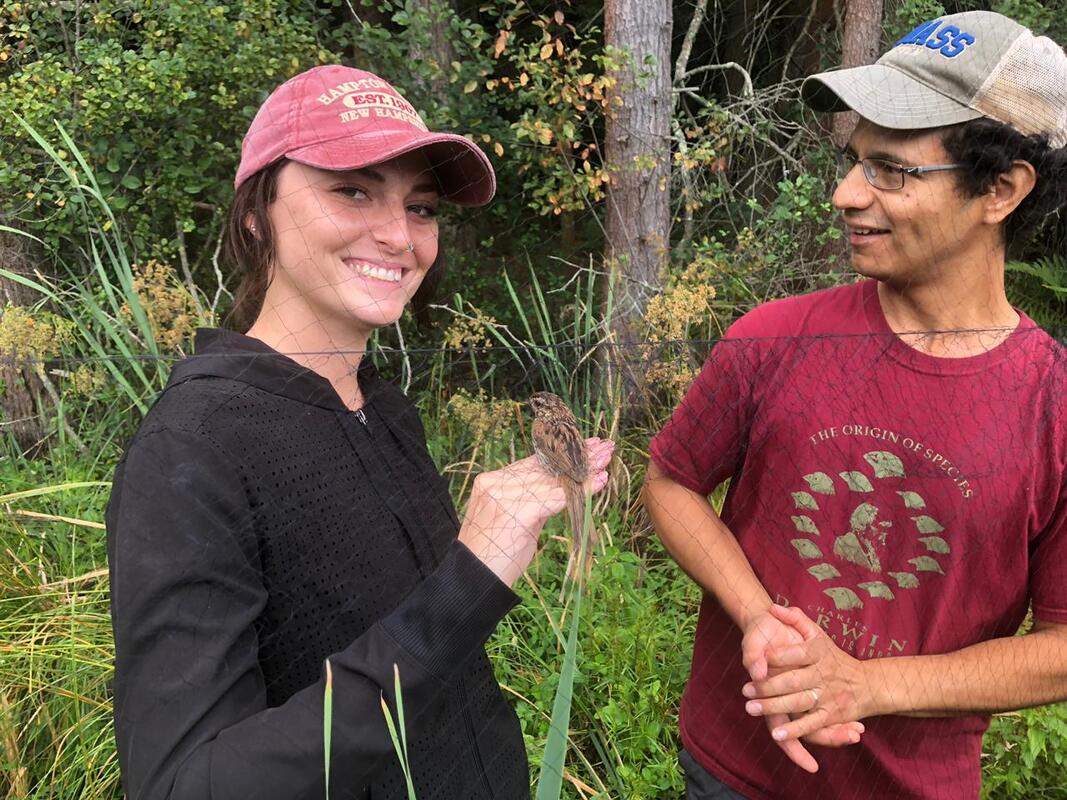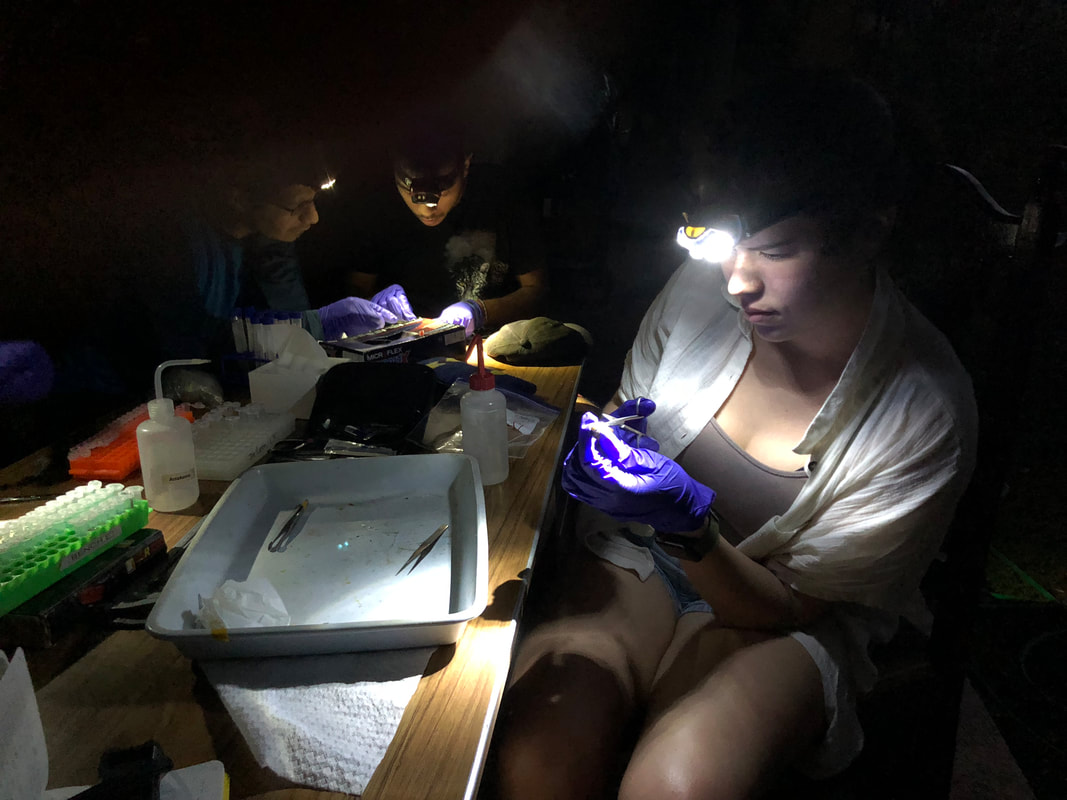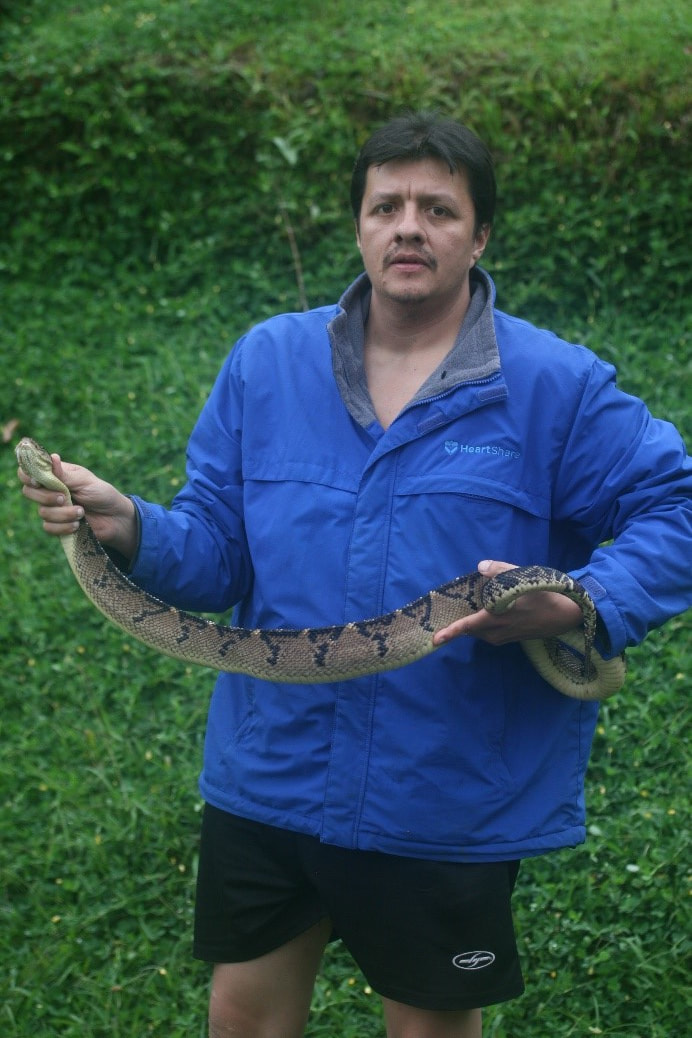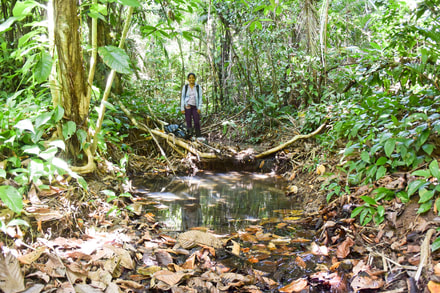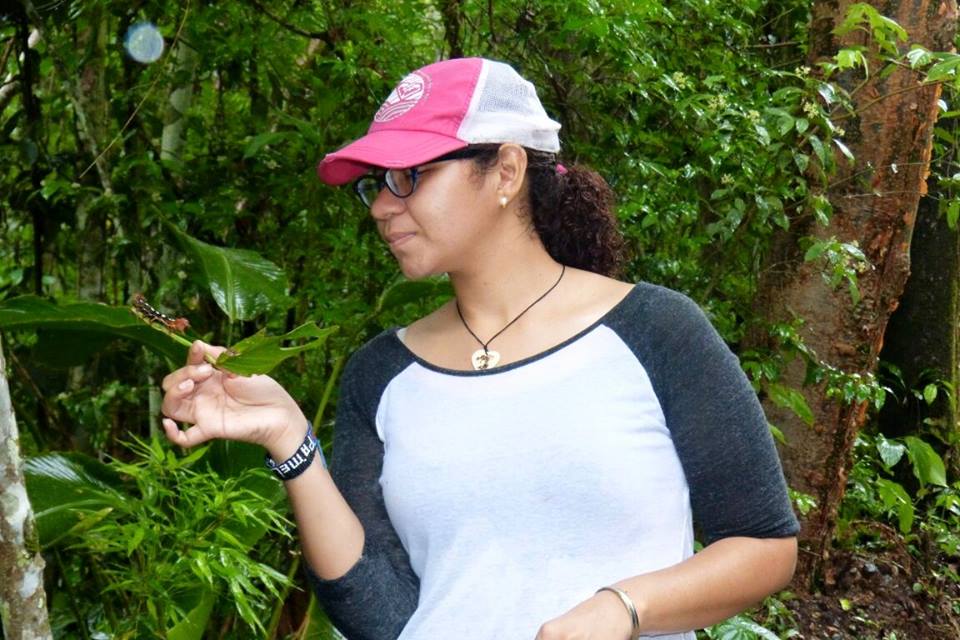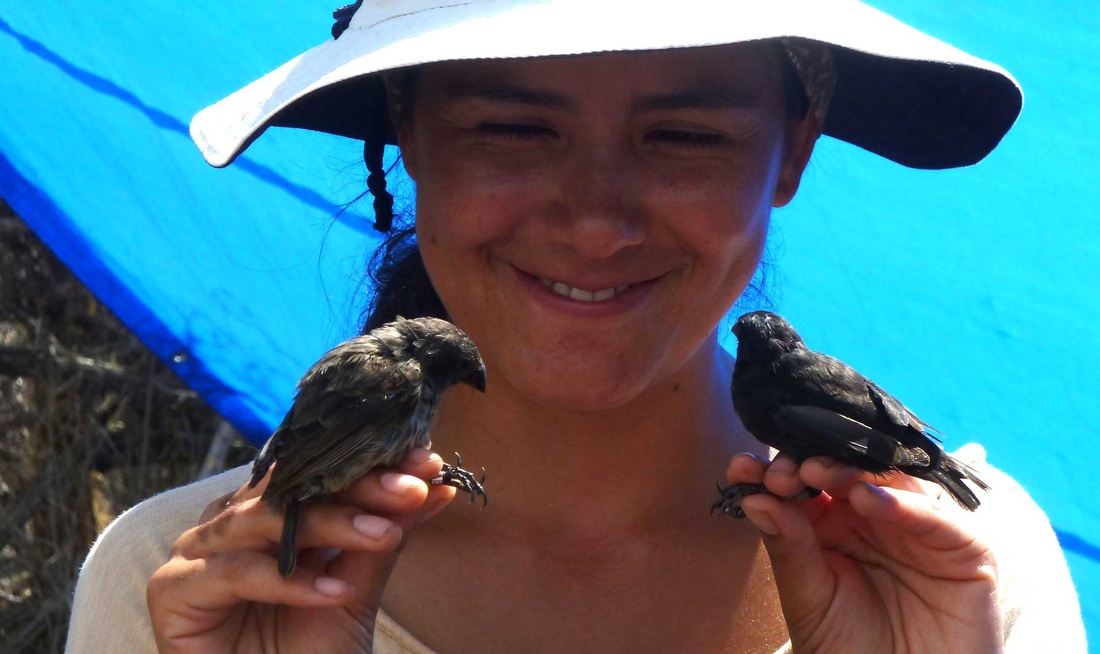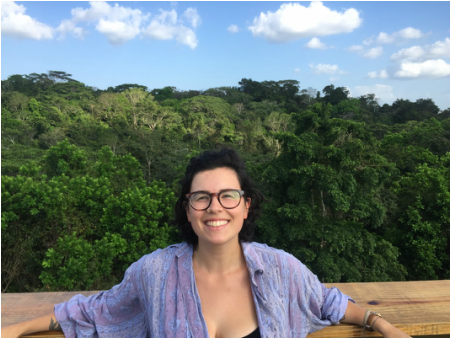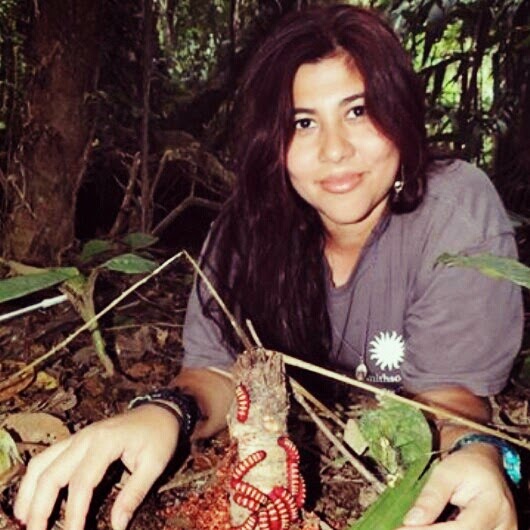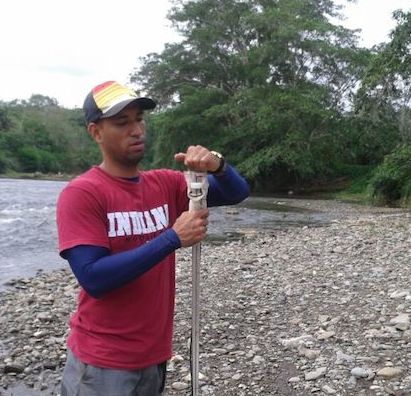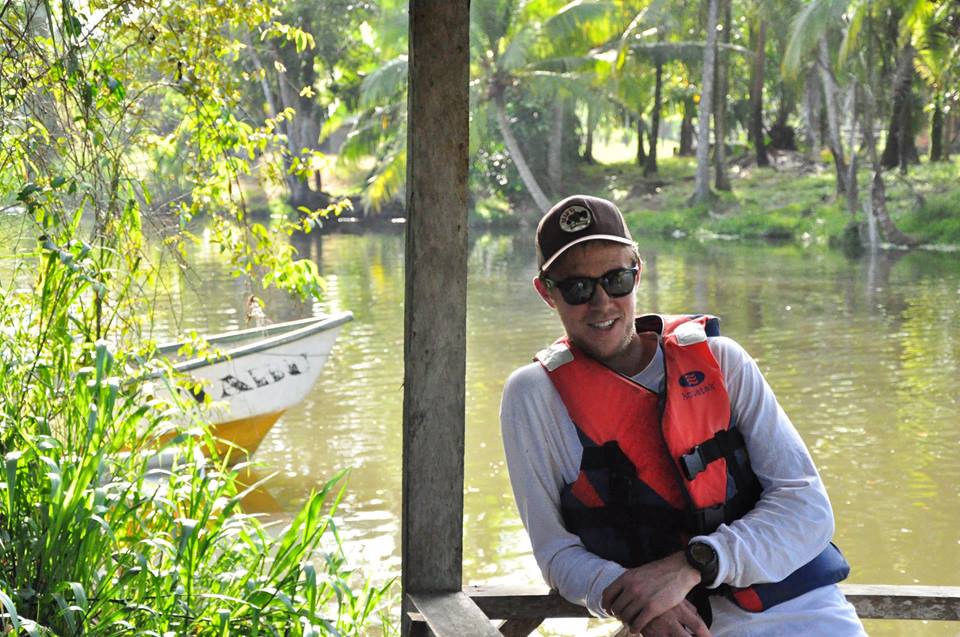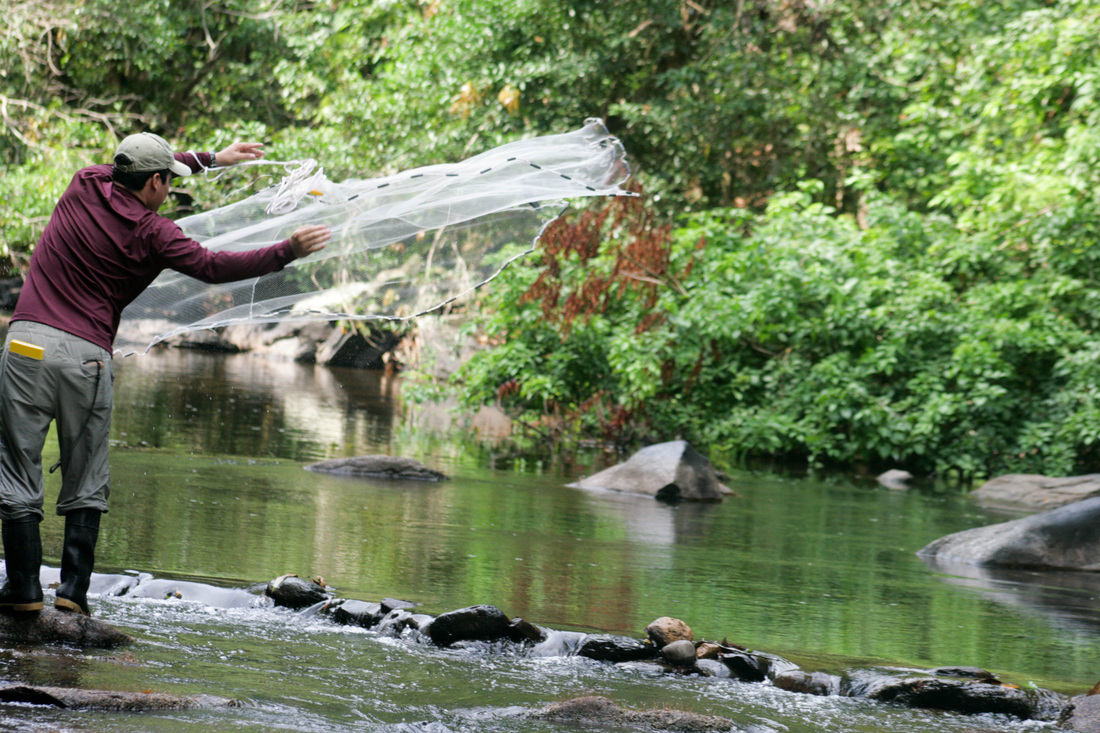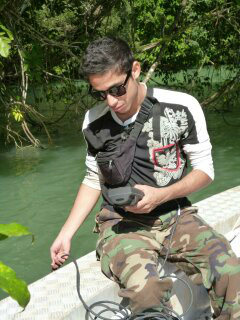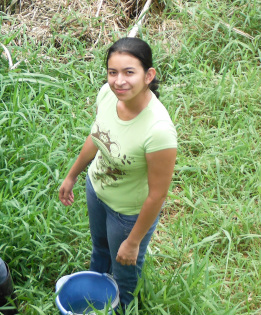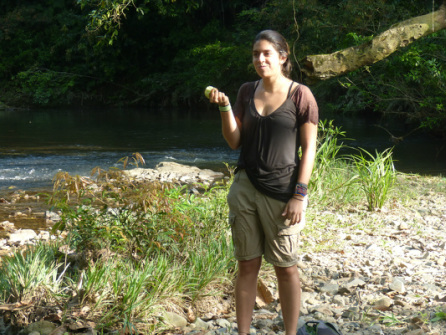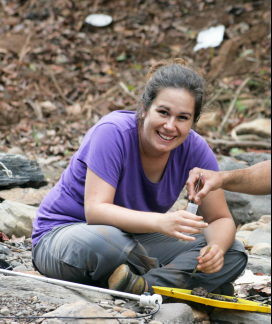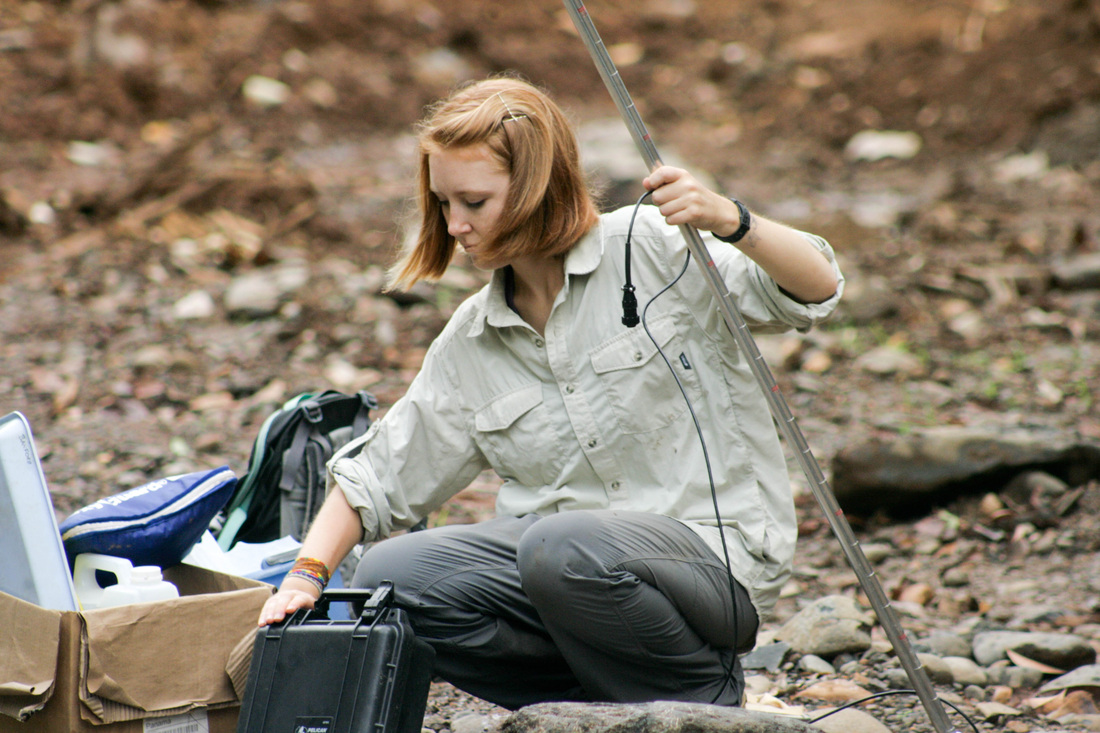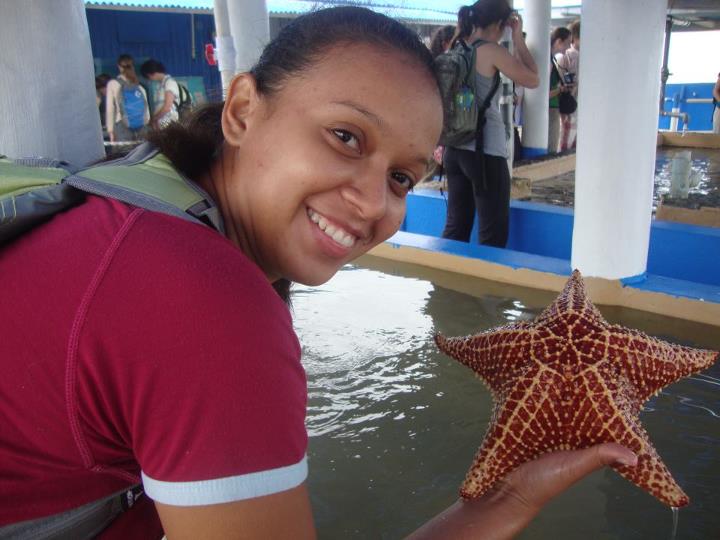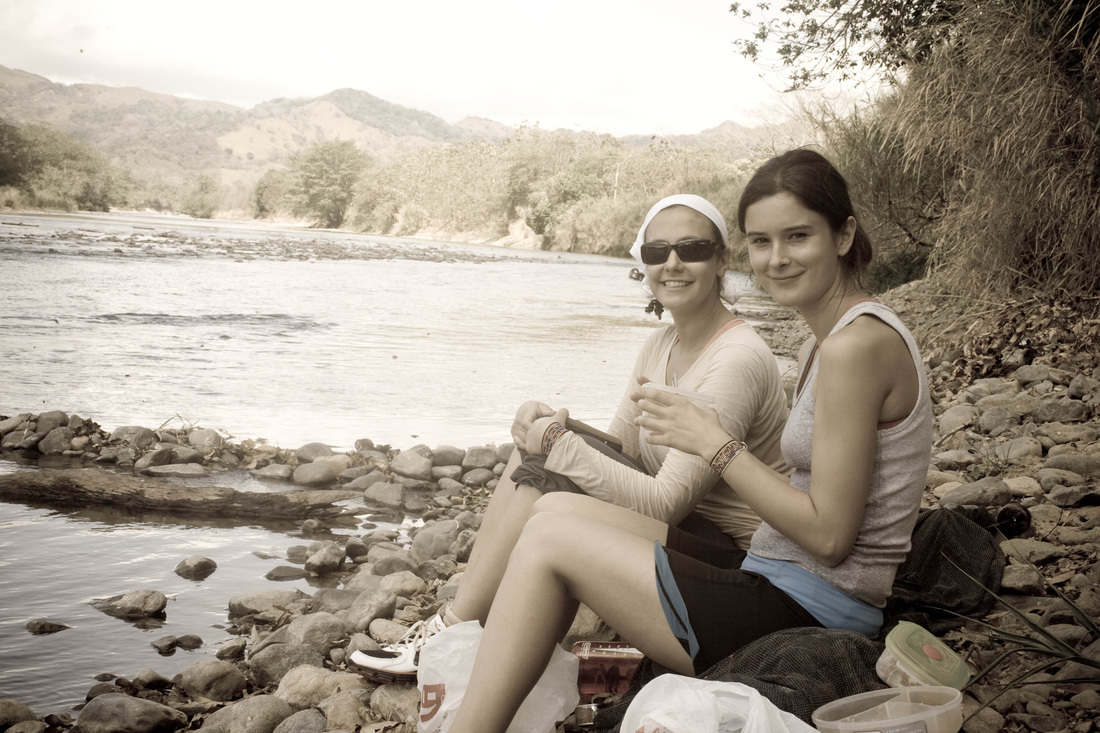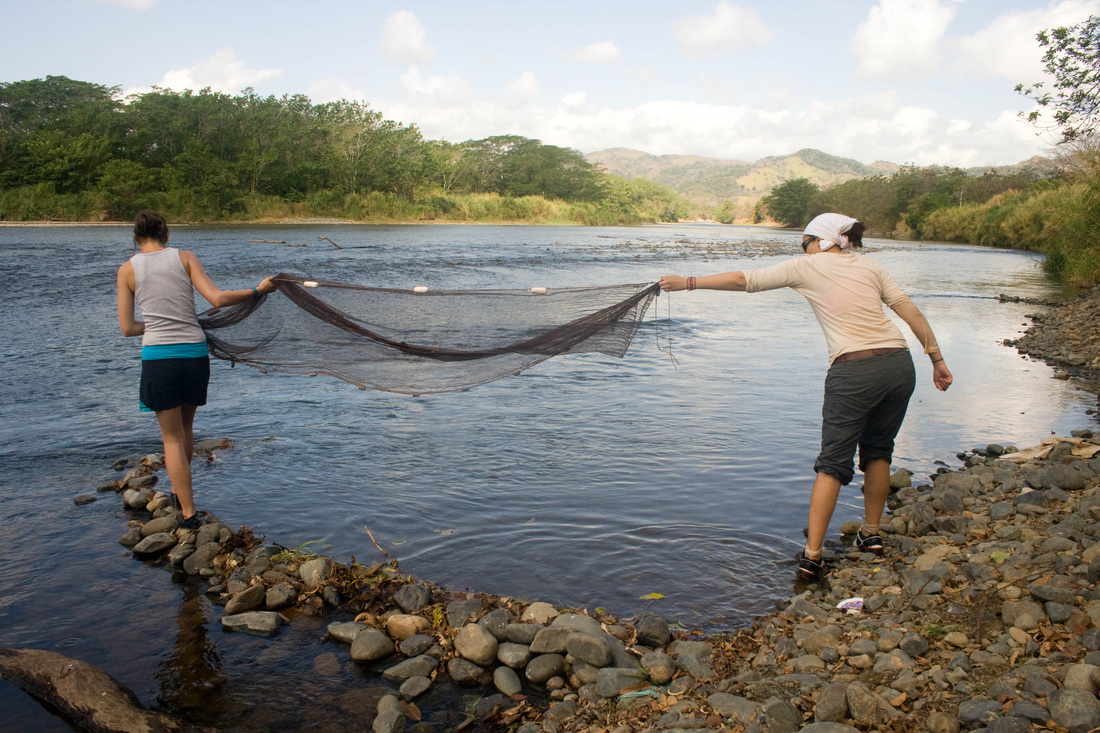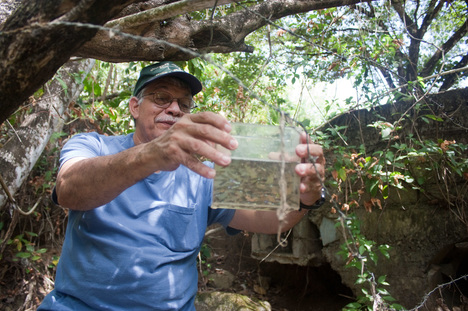Graduate students
|
Austin Toscano (Ph.D.) University of Massachusetts Boston. 2023-present.
Topic: Ecology and evolution of birds in urban environments I graduated from the University of Connecticut Storrs in December 2021 with a Bachelors in Ecology and Evolutionary Biology. I have previously worked for the National Audubon Society and the Guppy Project in Trinidad. My main research interest is anthropogenic induced evolution and its evolutionary and ecological consequences on the affected populations. My research focuses on how urbanization effects hybridization rates between Galapagos finches of the genus Geospiza. I will collect morphological and genetic data from populations in urban and natural environments to compare differences in hybridization rates. I hypothesize that hybridization is more common in urban areas due to niche erosion resulting from the abundance of human foods available. Darwin’s finches, known for their adaptive radiation resulting in differing beak morphologies, tend to be more generalist during times of plenty in the wild and hybridize more frequently. I am interested to see if these urban hybrid zones can lead to the formation of new urban adapted species, and if the process is repeatable across urban areas on different islands. |
|
Daniel Buitrago (Ph.D.) University of Massachusetts Boston. 2017-present.
Topic: Ecology and evolution of contemporary diversification in Neotropical hummingbirds The local origin and diversification of the Southern Mesoamerican Mountain-Gems complex raises questions regarding the patterns of distribution and diversification of this highland taxon in the Central American Isthmus. In particular, the presence of geographically independent populations with parallel phenotypic changes suggests that this group of charismatic hummingbirds is undergoing contemporary speciation. Our project aims to understand the mechanisms that drive recent diversification of this complex of highland hummingbirds in the absence of geographical barriers. To address this issue we are combining knowledge from ecology, population dynamics and population genomics. In addition, we are also interested in gaining more knowledge about the natural history of all the species in the complex, specially on the newly discovered morph of Mountain-Gem in the southern Azuero Peninsula in Panama. |
|
Mickayla Johnston (M.Sc.) Environmental Biology Program. University of Massachusetts Boston. 2019-2022.
I graduated from Keene State College in May 2018 with a degree in Biology and Environmental Studies. My research interests focus on the effects of anthropogenic disturbances on biodiversity and evolution. My research focuses on how increasing urbanization is impacting populations of Red-Winged Blackbirds (Agelaius phoeniceus) across their entire range. In particular, I am investigating how the alteration of natural land cover types, via urban sprawl, affects the ecological and evolutionary processes that maintain species. I intend to determine the degree to which Red-Winged Blackbirds are interacting with urban environments, and quantify morphological and genetic variation across varying degrees of natural and urban habitats, thus establishing the adaptive consequences of urbanization on Red-Winged Blackbirds. In addition, I am interested in the evolutionary history of Red-Winged Blackbirds and other species within the blackbird (Icteridae) family. Overall, I would like to understand how evolutionary processes proceed in the face of human disturbances, and how we can mitigate such disturbances and conserve biodiversity. |
|
Bruna Silva (M.Sc.) Environmental Biology Program. University of Massachusetts Boston. 2019-2022.
Topic: The role of parasites in driving MHC diversity in neotropical electric fishes. I graduated in 2017 from the University of New Hampshire with a B.S. in Zoology and Animal Behavior. I have spent several years observing marine mammals in Stellwagen Bank National Marine Sanctuary. My research aims to understand the processes that drive diversification in weakly electric tropical fish. More specifically, looking at the variation of MHC genes in the fish, Brachyhypopomus occidentalis. This research dives into how these highly polymorphic genes affect parasitic loads in different populations throughout Panama. |
|
Elaine Montes (Ph.D.) Environmental Biology Program, and NSF IGERT fellow. University of Massachusetts Boston. 2017-2022.
Topic: Exploring the effects of urbanization on the adaptive radiation of Darwin's finches She graduated in May 2016 from Binghamton University in New York and earned her B.S. in Biology with a concentration in Ecology, Evolution and Behavior. Elaine spent the last year in Washington, D.C. working with the National Park Service to connect local and visiting park enthusiasts with greenspace service projects. Her interests lie in evaluating the effects of anthropological disturbances on animal behavior, ecology and evolution. Specifically, she hopes to investigate how increasing urbanization in the Galapagos can affect ecological niches and evolution in Darwin's finches. Elaine is an avid camper and traveler, and loves to cook. |
|
Luis Elizondo (M.Sc.) Universidad de Panama. 2016-2019 Topic: Brain-size evolution in Neotropical vipers I have a broad interest in biological sciences and I´m passionate about the evolution of biodiversity. I got a Bachelor Degree in Biology from University of Panamá. I have participated as volunteer, assistant and coordinator of different projects focused on conservation, behavior, ecology, and neurobiology of vertebrates and invertebrates. Currently, I am developing my Master's thesis at the University of Panama. The main goal of my thesis is to understand the relationship between encephalic size and body size, and its anatomical consequences in Crotaline vipers. With this project I plan to develop a new line of research focus on understanding the evolution of the brain size in Neotropical reptiles. Also, I play soccer, another of my passions! Publications: Elizondo-Lara L., Young J., Schliep K. and De León L.F. 2021. Brain allometry across macroevolutionary scales in squamates suggests a conserved pattern in snakes. Zoology. |
|
Anakena Castillo (Ph.D.) - INDICASAT. 2014-2020.
Topic: Exploring the potential for adaptation to climate change in freshwater ecosystems. "I am interested in the adaptation of freshwater organisms to the environmental variation predicted by climate change in Neotropical freshwater environments. Specifically, I study how changes in salinity and temperature might affect freshwater organisms and how this might impact on the structure and functioning of freshwater ecosystems". Publications: Castillo A.M. and De León L. F. 2021 . Evolutionary mismatch along salinity gradients in a Neotropical water strider. Ecology and Evolution. 00:1–14. Castillo, A. M., K. Saltonstall, C. F. Arias, K. A. Chavarria, L. A. Ramírez-Camejo, L. C. Mejía, and L. F. De León. 2020. The Microbiome of Neotropical Water Striders and Its Potential Role in Codiversification. Insects: 578 11:578. Castillo A.M., Sharpe D.M.T., Ghalambor C. and De León, L.F. 2017. Exploring the effects of salinization on trophic diversity in freshwater ecosystems: a quantitative review. Accepted. Hydrobiologia. De León, L.F. and Castillo A.M. 2015. Rhinella marina (Cane Toad). Salinity tolerance. Herpetological Review 46:237-238. |
|
Celestino Aguilar (Ph.D.) - INDICASAT. 2014-2020. Topic: Using ultra-conserved elements (UCEs) to study Neotropical biodiversity. "My research focus on the use and development of UCEs to study evolutionary history in highly diverse Neotropical species of fish and birds. Particularity, I am currently focus on species of Panamanian weakly electric fishes, and in populations of the White-breasted Wood-wren bird Henicorhina leucosticta." Publications: Aguilar, C., Miller M.J., Loaiza J.R., Gonzalez R., Krahe R., and De León, L.F., 2019. Tempo and mode of allopatric divergence in the weakly-electric fish Sternopygus dariensis in the Isthmus of Panama. Scientific Reports 9, 18828 Aguilar, C., Miller M.J., Loaiza J.R., Krahe R., and De León, L.F., 2018. Mitogenomics of Central American weakly-electric fishes. GENE 686: 164-170. Aguilar, C., De León, L.F., Loaiza, J.R., McMillan 0., and Miller M.J. 2014. Extreme sequence divergence between mitochondrial genomes of two subspecies of White-Breasted Wood-Wren (Henicorhina leucosticta, Cabanis, 1847) from Western and Central Panama. Mitochondrial DNA, 1736:1-2. Loaiza, J.R., Aguilar C., De León, L.F., McMillan 0., and Miller M.J. 2014. Mitochondrial genome organization of the Ochre-Bellied Flycatcher, Mionectes Oleagineus. Mitochondrial DNA, 1736:1-2. Miller, M.J., Aguilar C., De León, L.F., Loaiza J.R., and McMillan 0. 2014. Complete mitochondrial genomes of the New World Jacanas: Jacana spinosa and Jacana jacana. Mitochondrial DNA, 1736:1-2. |
|
Pamela Polanco (M.Sc.) Universidad de Panama. 2016-2019
Topic: Ecology and evolution of water striders in Panama "I am interested in the study of the processes that determine adaptive diversification of water striders in Panama. To achieve this goal, I study the ecological factors that shape the diversity and distribution of water striders (Gerridae) in Panama." |
Former students
|
Anne-Sophie Caron (M.Sc.) BESS-program Internship, McGill University. Winter-Spring 2016
Topic: Trait-based ecology: phenotipic variation in aquatic insects at different ecological scales "I'm interested in looking at how functionally important traits in aquatic insects (body size and weight) vary across ecological scales. When comparing this variation to environmental variables, this can help us determine the intrinsic and extrinsic factors that shape community structure of macroinvertebrates in neotropical streams and the scale at which they act. For this project, I'll be looking at three ecologically and taxonomically important groups in stream ecosystems (Trichoptera, Coleoptera and Odonata) collected in several rivers, across different watersheds." |
|
Alex Tran (M.Sc.). NEO-program, McGill University (Co-supervisor). 2013-2015
Topic: The role of predators in the evolution of weakly electric fishes. "I work with Brachyhypopomus occidentalis, a weakly electric fish that generates electric signals used for navigation, prey location and communication. Recently, several populations of B. occidentalis across Panama were shown to diverge in the shape of their electric signals, but we don't know what is causing this divergence. Is it just due to the populations being isolated for a long period of time, or is there something driving this signal divergence? Co-existing with these electric fish are electroreceptive predators, predators equipped with electroreceptors which allow them to eavesdrop on the electric signals produced by B. occidentalis. The main objective of my M.Sc. is to investigate whether differences in densities of these electroreceptive predators are the forces behind the divergence of the electric fish signals". |
Undergraduate students
|
Cameron Roy - PFSS internship.
McGill University. Winter 2016 Topic: Evaluation of significance of environmental conditions on Calamoceratidae case morphology in freshwater streams of the neotropics. We are examining how the morphology of aquatic macroinvertebrates is affected by its environmental conditions, specifically canopy cover and temperature and nitrate concentration. We are comparing Calamoceratidae larval cases across gradients in independent streams." |
|
Carlos Yanez- PFSS internship.
McGill University. Winter 2016 Topic: Evaluation of significance of environmental conditions on Calamoceratidae case morphology in freshwater streams of the neotropics. "We are examining how the morphology of aquatic macroinvertebrates is affected by its environmental conditions, specifically canopy cover and temperature and nitrate concentration. We are comparing Calamoceratidae larval cases across gradients in independent streams." |
|
Víctor Bravo - Undergraduate thesis.
University of Panama. 2014-2015 Topic: Especialización a nivel individual en peces de agua dulce Neotropicales. “Estamos explorando la especialización a nivel individual en Roeboides occidentalis, un pez de agua dulce de la zona oriental de Panamá. Para esto analizamos la dieta a nivel de individuos y se relación con la variabilidad morfología de especie. Este estudio contribuirá a conocer de la historia natural de esta especie y cómo se da la utilización de los recursos en peces neotropicales”. |
|
Celestino Martínez -Undergraduate thesis.
University of Panama. 2013-2014 INDICASAT internship. 2014 "Actualmente estudio la variación fenotípica de Poecilia reticulata una especie introducida en Panamá. Específicamente, estoy estudiando la variación en los patrones de coloración de esta especie y su efecto sobre la adaptación a las condiciones ecológicas locales". Publications: Martínez C., Chavaría C., Sharpe D.M.T. and De León, L.F. 2016. Low predictability in colour polymorphism in introduced guppy (Poecilia reticulata) populations in Panama. PLoS ONE 11(2): e0148040. doi: 10.1371/journal.pone.0148040 |
|
Carmen Chavarría - Undergraduate thesis. University of Panama. 2013-2014
"Estudio la variación morfométrica en poblaciones introducidas de Poecilia reticulata a través de morfometría geométrica en diferentes ríos y lagos en Panamá". Publications: Martínez C., Chavaría C., Sharpe D.M.T. and De León, L.F. 2016. Low predictability in colour polymorphism in introduced guppy (Poecilia reticulata) populations in Panama. PLoS ONE 11(2): e0148040. doi: 10.1371/journal.pone.0148040 |
Honorary members
© Copyright 2014. De León, L.F. All rights reserved.
